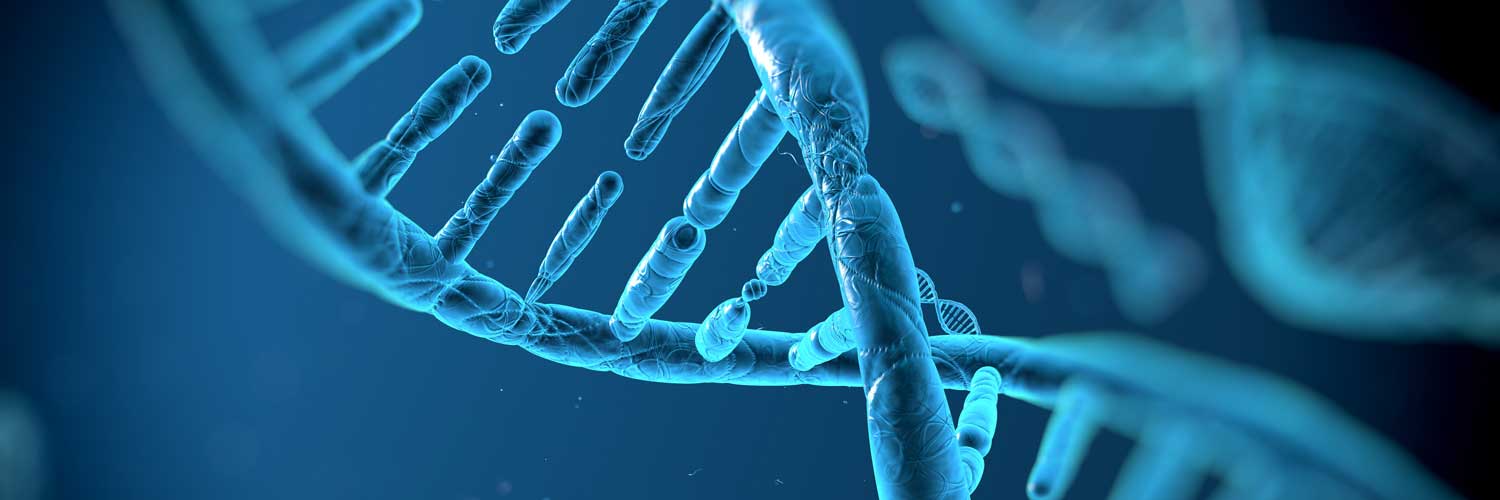Key points of infertility treatments
- Infertility treatments are medical interventions that can improve, repair or work around conditions that cause infertility in men, women or both.
- Treatments for infertility can range from simpler efforts we first attempt when possible, such as medications, to more complex treatments and services, such as in vitro fertilization (IVF), intrauterine insemination (IUI), egg donation, using a gestational carrier and reproductive surgery.
- Our providers conduct fertility testing for both men and women to reach the proper diagnosis and design a customized treatment plan.
- Infertility treatment is an option for individuals or couples having trouble conceiving or carrying a pregnancy to term.
- Similar fertility services can also help LGBTQ+ couples and any individual requiring reproductive assistance to have a baby.
- Fertility preservation treatments can also assist individuals or couples in preparing for pregnancy in the future through sperm, egg or embryo freezing and storage.
- Ember Fertility Center offers high-tech treatment options in our state-of-the-art facility, plus a caring, dedicated team that educates and cares for patients at every step of the treatment journey.

At Ember, everyone is a VIP – very important patient
And we have a thing for the small things: Each Ember patient gets a dedicated fertility coordinator, a patient’s personal care guide through every clinic detail, from the very first phone call to meeting your little miracle.
What is infertility treatment?
Infertility treatments are medical procedures and techniques that seek to correct or overcome conditions causing infertility in men, women or both. These treatment options range from medications for hormone imbalances and ovary stimulation to simple procedures like intrauterine insemination (IUI) to more complex assisted reproductive technologies such as IVF or laparoscopy (fertility surgery).
Other fertility services
In conjunction with standard fertility treatments, patients may also need third-party assisted reproduction services, such as using sperm donation, egg donation or a gestational carrier (surrogacy). These are typically required by our LGBTQ+ patients or individual patients, and may also be recommended for heterosexual couples facing more difficult infertility challenges, such as advanced age or genetic concerns.
We also offer fertility preservation services to freeze and store embryos, eggs or sperm for future use.
Developing an infertility treatment plan
Our providers always seek the simplest and least invasive treatment options first, when appropriate. Some patients we evaluate may only need guidance in making lifestyle changes, such as losing weight, or require minimally invasive (minor) procedures to correct anatomical issues before they are able to conceive. At Ember, we look for the best method to support mother nature in helping patients have a child.

High-tech fertility treatment center designed with the patient in mind
When designing our top-of-the-line fertility clinic, IVF lab and surgery facility, no detail was too small because our patients are worth it.
- The IVF lab has the most advanced equipment, including a time-lapse incubator (for uninterrupted embryo development and monitoring) and air filtration system.
- Our center partners with labs using the latest next-generation sequencing preimplantation genetic testing (PGT) technology.
- We are one of the few fertility centers with an in-house surgery center, laboratory and cryopreservation system all under one roof.
- Each embryo transfer room is equipped with monitors that have a direct line in to the lab so patients can see embryos being prepared for transfer.
Infertility treatment & services overview
Following are the more common infertility treatments and fertility services. Ember offers patients the entire range of evidence-based fertility treatments. Some treatments may be used together or in sequence.
We have a thing for the small things
Our fertility doctor takes great care to discuss treatment options and details and to answer patients’ questions and concerns in order to develop a treatment plan that’s right for each individual – and he’s there for every appointment. Ember also assigns each patient a dedicated coordinator who acts as the patient’s personal care guide from the very first contact and consultation all the way through treatment.
Infertility testing & diagnosis
We use fertility testing to establish the cause or causes of infertility in men and women, pointing our providers to a diagnosis and treatment plan.
Fertility tests for females
Various fertility tests can help us determine the causes of female infertility. These include testing for difficulties with ovulation, complications with the reproductive system and hormonal imbalance. Testing can involve a physical exam, discussion of health history, blood work and other procedures.
Male fertility testing
In most cases male infertility is caused by low quality or quantity of sperm. The primary male infertility test is a semen analysis, which checks sperm health, the hormone balances that affect it and other issues. Testing can also be done through a physical exam, health discussion, blood evaluation and imaging.
Intrauterine insemination (IUI) fertility treatment
Intrauterine insemination is an in-office procedure that involves directly placing healthy sperm into a woman’s uterus. This process of bypassing the cervix increases the chances of egg fertilization. IUI takes less than 15 minutes.
Ovulation induction
Irregular ovulation or lack of ovulation is one of the most common causes of female infertility and is responsible for about 25% of female infertility cases. Ovulation induction is the use of specific oral medications to stimulate a woman’s ovaries to release mature egg(s), also called oocytes.

In vitro fertilization (IVF) infertility treatment
IVF is the process of combining a woman’s egg and a man’s sperm in a laboratory to create an embryo. The eggs are retrieved in a minimally invasive (minor) surgical procedure then combined with the collected sperm in the lab for fertilization. The resulting embryo is then transferred to the woman’s uterus for pregnancy.
IVF is the most effective form of infertility treatment because it bypasses several conditions in both the man’s and the woman’s reproductive systems that cause infertility. Depending on the infertility diagnosis, we may recommend some of the procedures below as part of the IVF process. IVF and each of the following procedures require strict protocols handled by our expert reproductive endocrinologist and our lab director.
Read More
Intracytoplasmic sperm injection (ICSI)
ICSI involves injecting a single healthy sperm into an egg’s cytoplasm (inside the egg) where fertilization occurs. We may recommend this advanced technique to help patients conceive despite conditions like poor sperm quality. ICSI assists the sperm in getting through the egg’s outer shell, increasing the chance of creating an embryo.
Embryo preimplantation genetic testing (PGT)
For women over age 35 or who have indicators of genetic conditions that can or have resulted in pregnancy failure (miscarriage) or birth defects in a child, we often recommend preimplantation genetic testing (PGT). This allows our fertility specialist to identify chromosomal and other genetic abnormalities in frozen embryos. The healthiest embryo is then selected for transfer (to be implanted in the mother’s womb, or uterus). This increases the probability for successful birth and decreases chances of genetic conditions in the baby. Ember sends frozen embryos to highly respected labs that conduct advanced next-generation sequencing of embryos.
Sex selection
Sex selection, or gender selection, is the process of prospective parents choosing the sex of their child by selecting an embryo for implantation that is of the desired sex. This can only be done with IVF embryos and only after PGT has revealed the sex of the embryos tested.
When parents are interested in sex selection, our fertility specialist Dr. Freije asks, “If you conceived naturally, would you be happy with whatever gender mother nature gave you?” If the answer is yes, he will recommend transferring the healthiest embryo rather than selecting one based on the sex. We are very open to sex selection due to genetic concerns in an embryo or family balancing.
Elective single embryo transfer (eSET)
Elective single embryo transfer (eSET) is when the patient undergoing IVF chooses to have a single embryo implanted for pregnancy when multiple, healthy embryos are available. Ember’s primary goal is for the mom and baby to be healthy, so we highly recommend eSET for the birth of a single, healthy child and to decrease the incidence of multiple pregnancies (twins or more). Multiple pregnancies have increased risks for mother and child.

Fertility surgery: hysteroscopy & laparoscopy
Hysteroscopy & laparoscopy are common, minimally invasive surgeries that can diagnose & treat an infertility condition during the same procedure. These conditions include endometriosis, uterine polyps and abnormalities in the uterus or fallopian tubes. Additional types of surgery can also be beneficial in treating infertility. These procedures are performed by our reproductive endocrinologist and surgeon Dr. Freije in our in-house fertility surgery facility.
Fertility preservation
Fertility preservation is the use of treatments for men and women to safeguard their ability to have children in the future. This is accomplished by freezing eggs, embryos or sperm when the person is younger and these tissues are most healthy. They are then stored for later use in starting a family. Fertility preservation can also enable men and women facing fertility-harming cancer treatments to have children afterward.
Egg freezing
Egg freezing is the most common form of fertility preservation. Age can decrease a woman’s egg supply, with the quality and quantity rapidly falling after age 35. By freezing eggs when she is younger and her eggs are more healthy, a woman can conceive later in life through fertility treatment. Egg freezing can be done for personal reasons such as focusing on a career first or for medical reasons.
Before freezing eggs, we conduct a physical examination and monitor the ovaries. The egg freezing process uses some IVF technology and requires two to three weeks to complete.
Third-party assisted reproduction
Third-party assisted reproduction, also called third-party fertility, refers to the use of another person or persons who help an infertile couple, LGBTQ+ parents or single women/men have a child they could not have on their own. This generally involves using sperm, eggs or embryos donated by a third person that will be used in IVF procedures to achieve pregnancy for the intended parent(s). Third-party fertility can also sometimes involve a gestational carrier (surrogate) to carry a pregnancy.
LGBTQ+ fertility services
Many LGBTQ+ couples and individuals do not need treatments for infertility, but do need such treatments as reproductive services to help them build a family. We are committed to helping LGBTQ+ people fulfill their dream of parenthood.
Sperm donation
We use sperm donation as a fertility treatment for couples when male infertility is related to too-low quantities or quality of sperm or a genetic concern. Sperm donation can also assist LGBTQ+ patients or single women seeking to have a child. Ember patients wanting to use a sperm donor will make their selection from available high-end sperm donors.
High-end sperm donors are highly educated, having obtained an advanced degree, and have undergone extensive health screenings and evaluations for healthy lifestyle factors. Sperm donors can be known to the patient or anonymous.
Egg donation
We use egg donation for women who cannot use their own eggs to conceive a child, either due to poor egg quality or quantity, advanced maternal (woman’s) age or for genetic concerns. Ember patients can elect to use high-end donated eggs that are either fresh or frozen. High-end egg donors are highly educated, having obtained an advanced degree, and have undergone extensive health screenings and evaluations for healthy lifestyle factors. Egg donors can be known or anonymous. The woman receiving the eggs will still need the male sperm to complete fertilization. Dr. Freije is very welcoming and successful in treating older women who needed egg donation to conceive.
Egg donation is also used for LGBTQ+ couples and individuals. Ember advises patients on egg donation options and empowers patients to decide for themselves whether or not egg donation is right for them.
Gestational carrier (gestational surrogacy)
A gestational carrier (surrogate) is a woman who becomes pregnant with IVF using embryos created by the intended parent(s) or using donor sperm and/or eggs (but not her own eggs). She carries the pregnancy through delivery, but the baby born is the legal child of the intended parents. We may suggest gestational carrier surrogacy as a fertility treatment if a woman cannot carry a pregnancy on her own or for male couples in need of a third party to carry the pregnancy.





